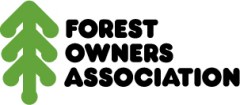PESTS AND DISEASES OF FORESTRY IN NEW ZEALAND
Fungi associated with dieback of totara
Scion is the leading provider of forest-related knowledge in New Zealand
Formerly known as the Forest Research Institute, Scion has been a leader in research relating to forest health for over 50 years. The Rotorua-based Crown Research Institute continues to provide science that will protect all forests from damage caused by insect pests, pathogens and weeds. The information presented below arises from these research activities.
From Forest Health News No. 44, July 1995.
 During the 1960s, 70s and early 80s the fungi associated with dieback of totara were studied at Tihoi (What's New in Forest Research 110 , 1982). At the time an unusual fungus was recorded fruiting saprophytically on dead twigs and leaves of totara that was simply designated Pestalotia 1. Recently two new collections of this fungus have been sent in for identification by J. Pascoe (Pureora/ 2/3/95) and J. Bartram (Invercargill, 15/6/95). The fungus has been identified as the Pestalotiopsis asexual state of Lepteutypa podocarpi an ascomycete. This fungus was originally described from Chile on Podocarpus nubigenus in 1973 but no asexual state was observed. It was then reported from Western Australia on Podocarpus drouyniana in 1986. In this case both the sexual and asexual states were found on the dead leaves and their connection was proven experimentally. On Podocarpus totara in New Zealand we have only seen the Pestalotiopsis asexual state. This native species exhibits a typical Gondwanan or Southern Hemisphere distribution.
During the 1960s, 70s and early 80s the fungi associated with dieback of totara were studied at Tihoi (What's New in Forest Research 110 , 1982). At the time an unusual fungus was recorded fruiting saprophytically on dead twigs and leaves of totara that was simply designated Pestalotia 1. Recently two new collections of this fungus have been sent in for identification by J. Pascoe (Pureora/ 2/3/95) and J. Bartram (Invercargill, 15/6/95). The fungus has been identified as the Pestalotiopsis asexual state of Lepteutypa podocarpi an ascomycete. This fungus was originally described from Chile on Podocarpus nubigenus in 1973 but no asexual state was observed. It was then reported from Western Australia on Podocarpus drouyniana in 1986. In this case both the sexual and asexual states were found on the dead leaves and their connection was proven experimentally. On Podocarpus totara in New Zealand we have only seen the Pestalotiopsis asexual state. This native species exhibits a typical Gondwanan or Southern Hemisphere distribution.
(Geoff Ridley, FRI)
This information is intended for general interest only. It is not intended to be a substitute for specific specialist advice on any matter and should not be relied on for that purpose. Scion will not be liable for any direct, indirect, incidental, special, consequential or exemplary damages, loss of profits, or any other intangible losses that result from using the information provided on this site.
(Scion is the trading name of the New Zealand Forest Research Institute Limited.)

 Farm Forestry New Zealand
Farm Forestry New Zealand

